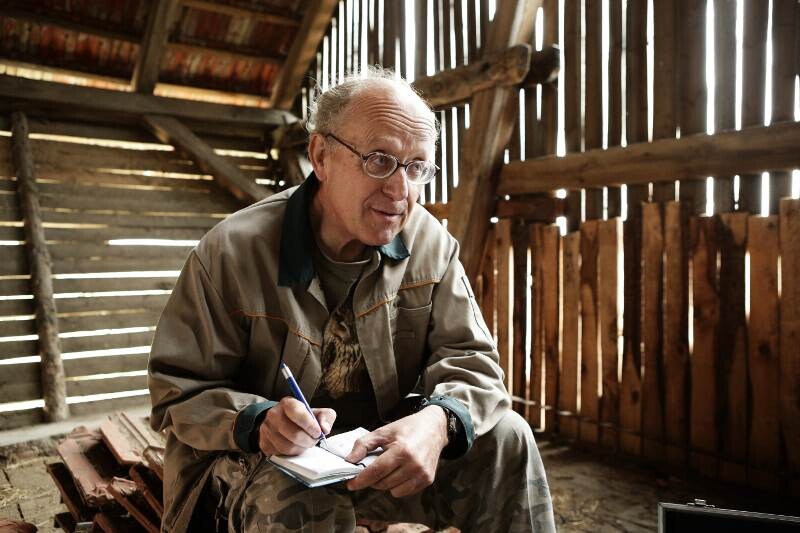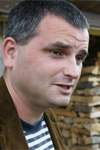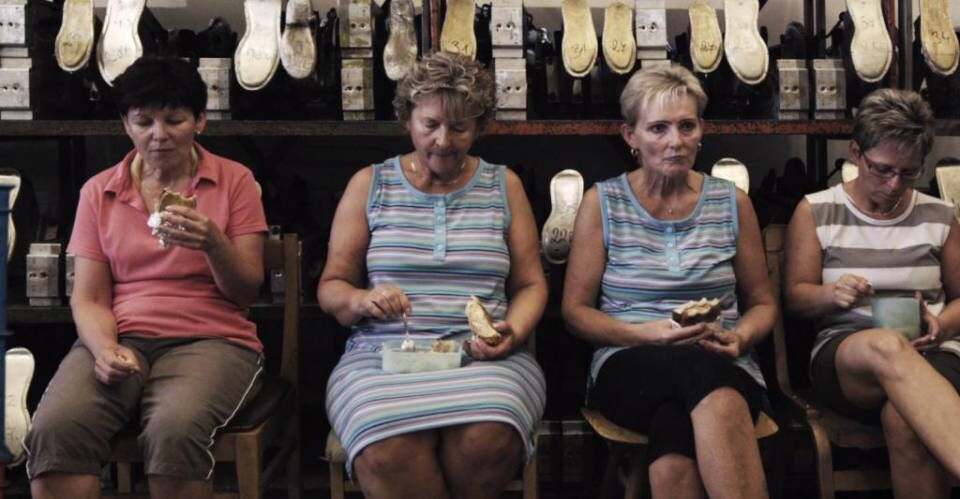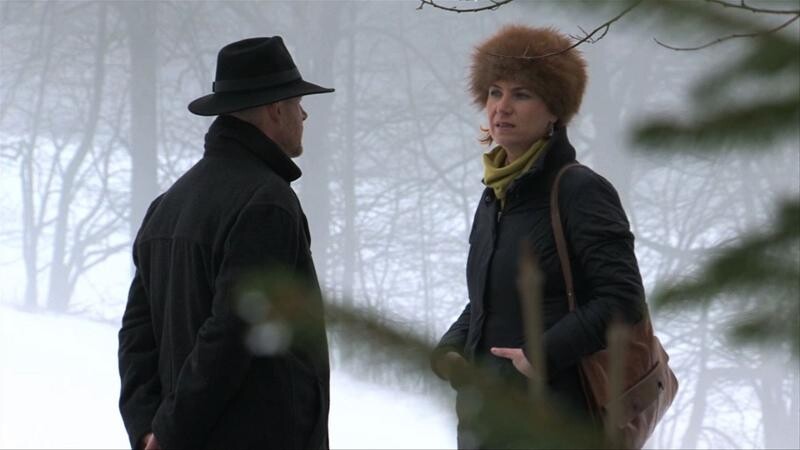The Energy of Unexpected Connections
“Those who smoke, ponder upon life.“ If anyone is living evidence of Goethe's quote, it is Jan Gogola, Jr. – with the October setting sun behind his back sitting in the smoky atmosphere of the Department of Documentary Film at FAMU.
The film is from the cycle, Stories of Uncommon Energy, which originated from the co-production of the Czech Television and CEZ Group. How would you describe your participation with these subjects?
A year ago, I received a phone call from Erika Hníková asking if I would be interested in taking part in an eight episode co-production series of the Czech Television and CEZ Group about people, who do more than is required. A special ad was supposed to appear on television inviting people to submit suggestions for potential adepts. I took some time for consideration, but in the end my fears of the possible involuntary pressures one can find himself in, were over-weighed by three ideas: I was interested in the experience with CEZ Group as a different world compared to what I had encountered so far as an author – producer. I wanted to find out if it would be possible to cooperate with such a type of powerful company in a creative way. It was a social-personal challenge analogical to my attempts in films to connect environments and situations, which at first glance do not seem to belong to each other. The fact that Erika was the dramaturge of the whole series played its role as well. She is an inspiration to me, in a good kind of way in how simply she thinks about complicated things. I was also interested in the topic about people, who do more than is required.
Did you choose the story of František on your own?
No, I submitted another man into the competition who, however, did not succeed. Nevertheless, I did not build my participation in the project upon me selecting the individual. Approximately 500 applicants signed up for the prepared cycle from which 20 were chosen in the first round. Each one of them came into the television studio to meet the representatives of Czech Television, CEZ Group and all of the directors, except for me since I was filming abroad at the time. During the meeting, eight individuals were chosen and then selected by the different directors. František was one of the two individuals from the final selection which I was most interested in and I was not alone with this preference. But based on a draw and negotiations, I was finally able to get František.
In the end, what did cooperating with CEZ Group bring?
The fact that even with CEZ Group you can cooperate in such a way that something meaningful is created. I am not just referring to the fact that the company did not put any political or ideological pressure on us while working on our film. I do not want to live in such a way that would a priori distinguish between those with whom you speak and those with whom you don't. In this sense, I find it a positive thing that not only CEZ Group, but also other big companies are partners of the Jihlava festival. Or do we want these companies to only support football or family films? Do, for example, films have to originate only in context and for contexts that are a priori given?
The film is presented by the voice of commentator Rímsky, who we know especially from nature documentaries. Why did you decide upon such a specific form of commentary?
With each film, I aim for the form to come out of its context. Which makes each film different. In the case of František, I built upon the fact that the film is about an unusually systematic and rational person, who is, at the same time, remarkably fascinated by nature, otherwise he would not be doing what he does. And it is actually difficult to determine to what extent he lives in the human world or the animal world. So I thought that we could create a portrait in the genre of nature films, posing questions about what is still human-like and what not and whether any given border between the two worlds actually exists. This is why I chose the genre and why it was my first time incorporating commentaries or film music. I also wanted to make sure that the chosen starting point did not overshadow the ethos of František's unusual activities.
What do you think makes him so unusual?
I will speak in general terms to not give away too much of the film. František's work has a strong impact on nature's diversity in the Břeclav region, also on the harvest of grains. The extent of his work could be an analogue to the book or film The Man Who Plants Trees, even though trees are not in the main role in the case of Franišek. The financial support from ecological institutions is not even enough to cover the expenses. And from his work's point of view, he is left with nothing. František lives with a certain ideal. And from this standpoint he can be an inspiration to everyone.
Taking into consideration the duality of a human – a bird, everything you have mentioned so far can be incorporated into the human category. In what way does his bird nature come through?
A person is also what he does. If you have a connection with something that flies, you also fly. Jean-Christophe Bailly wrote: We have wings due to which we are able to walk. For a long time I was thinking about including this sentence at the end of the film, but then I realized that it was already implicitly interwoven and that by doing so I would also disrupt the selected genre. Bailly with his seeming nonsense, states that we could possibly fly by what we do. In the case of what František does, this applies to him more than anyone.
|
|
Jan Gogola, Jr. (1971) is a journalism graduate from Charles University and the Department of Documentary Film of Prague's FAMU, where he currently works as a pedagogue. At the same time, he is an active creator of documentary films, for example the debut Vila Innocent (1996), the portrait films Rock of Life (Rock života) (2011) and The King Does Nothing (Král nic nedělá) (2012) or Kateřina Šedá: Mythmaking (Kateřina Šedá: Jak se dělá mýtus) (2013). |
This interview was published full-length in Czech in the Jihlava IDFF newspapers, dok.revue F03.
Translated by Christina Skorulská




